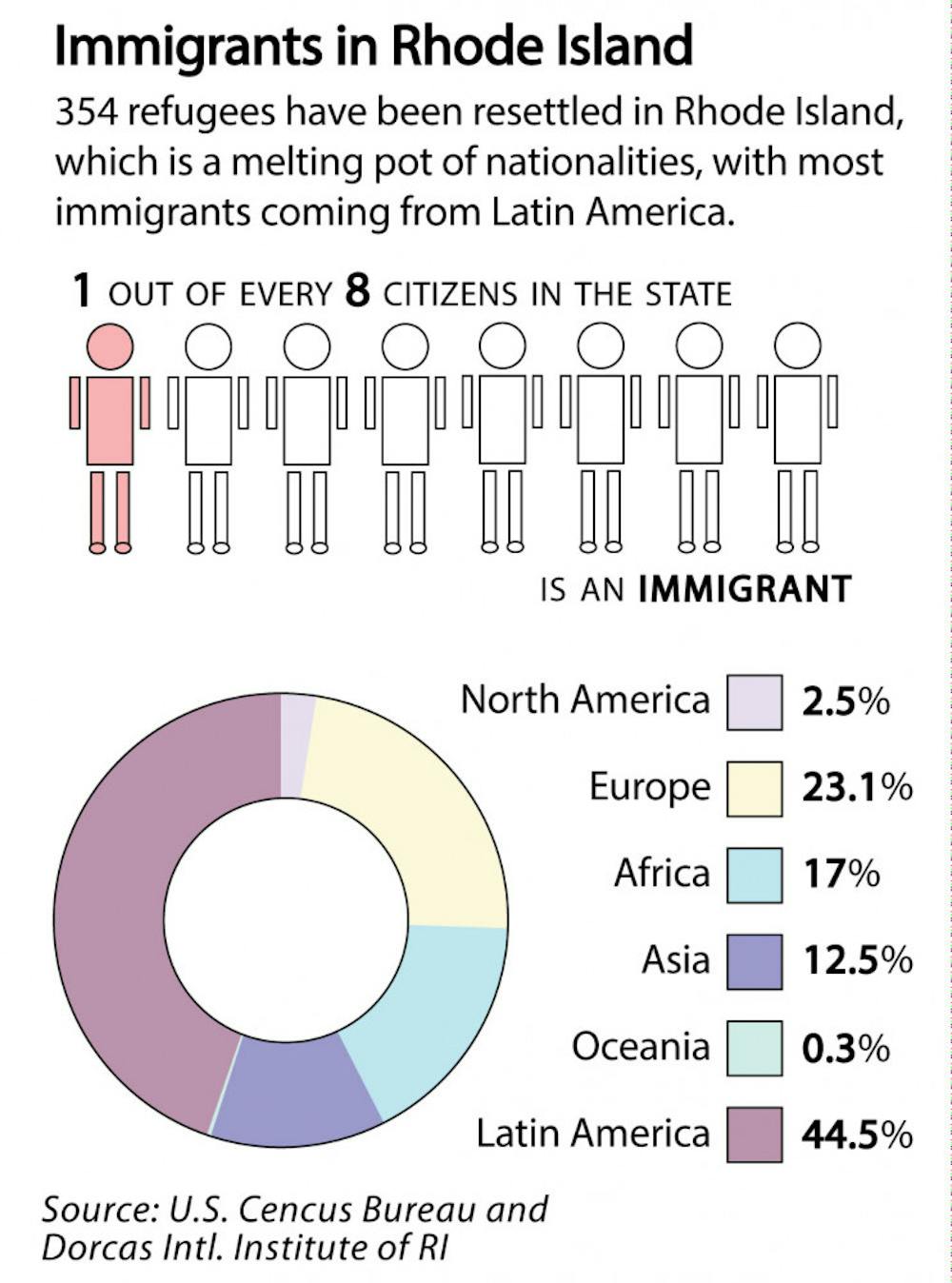One hundred refugees were expected to arrive in Rhode Island by this October, prior to President Donald Trump’s executive order, said Jessica Barry, director of development and communications at Dorcas International Institute of Rhode Island, an agency that helps to resettle refugees. Signed Jan. 27, the order temporarily prohibits entry into the United States from seven Muslim-majority countries. As for the many families hoping to find refuge in Rhode Island — sanctuary remains uncertain.
Dorcas, which also uses the acronym DIIRI, is one of the largest refugee resettlement agencies in the state. The agency has resettled an estimated 100 refugees since October 2016, and was expecting at least 100 more before the end of the fiscal year, Barry said. She added that the agency’s services have been impacted as the anticipated arrival of refugees in the Ocean State is no longer guaranteed.
Though U.S. District Court Judge James Robart halted the enforcement of Trump’s order Feb. 3, it could be reinstated if temporary stays by judges nationwide expire. The announcement of the ban has already disrupted the services of organizations like Dorcas.
“We understand that safety and security is an issue, (but) we feel very strongly that there is already tremendous amount of vetting,” especially with immigrants from places like Syria and Iraq, Barry said. “We’re certainly disappointed in the ban.”
Each year, DIIRI serves over 450 refugees from around the world, many of whom have traveled from the seven countries affected by Trump’s order, Barry said. DIIRI’s services aim to settle immigrants in the state by aiding many in the citizenship process. Now, the immigration ban has impacted such services as families are barred from entering the state, leaving the future of DIIRI and the refugee population uncertain.
“It’s going to change the pace of how we work (and) the everyday work for our staff members,” Barry said. “A lot of the folks in the refugee population are definitely aware of what’s going on,” she added. “They may require additional services — it’s a tough time.”
Reacting to Trump’s executive order, the Rhode Island American Civil Liberties Union has filed a number of lawsuits across the nation challenging the immigration ban, said Steven Brown, executive director of the RI ACLU.
According to Brown, the order raises numerous questions of constitutional concern including “its particular focus on certain Muslim countries and its explicit preference for Christian refugees.” He added that “these provisions strike us as being totally antithetical to fundamental, constitutional principles.”
Brown hopes the courts will continue to be receptive to the arguments raised by groups like the ACLU. State leaders and city officials across the country, however, have taken it upon themselves to obstruct Trump’s immigration orders on their own.
In November, Mayor Jorge Elorza vowed to protect marginalized residents of the state after some expressed concern with Trump’s campaign promises.
After the election, Elorza introduced the One Providence Initiative, a series of programs, events and reforms announced in the leadup to Inauguration Day. Elorza has supported the proposed Community Safe Act — a provision of the One Providence initiative — aimed to reform police-community relations. He also created a new Muslim-American advisory board — a group of advisors meant to guide the mayor on policy and issues relating to the Muslim community in Providence.
The mayor’s actions to prevent the Providence Police Department from cooperating with immigration enforcement have not been supported by all.
“He and (Gov. Gina Raimondo), to say they are not going to follow the law in the face of the president of the United States — it’s atrocious,” said William Gorman, executive director of Rhode Islanders for Immigration Law Enforcement, a non-profit organization advocating for strong enforcement of immigration laws.
In favor of the executive order, Gorman is critical of city officials like Elorza and hopes the executive order will fulfill Trump’s campaign promise to enforce current immigration laws.
“We’ve had these laws since 1986, and no one’s bothered to enforce them, and that’s why we’re in the situation we’re in,” Gorman said. “We’ve been in existence since 2006, shouting from the rooftops to please enforce the current immigration law.”





